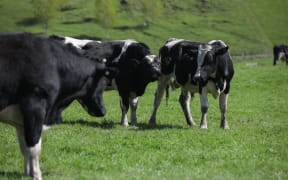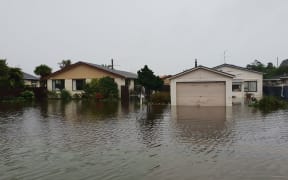The government's move to tackle climate change is being characterised as hopeful but flawed.
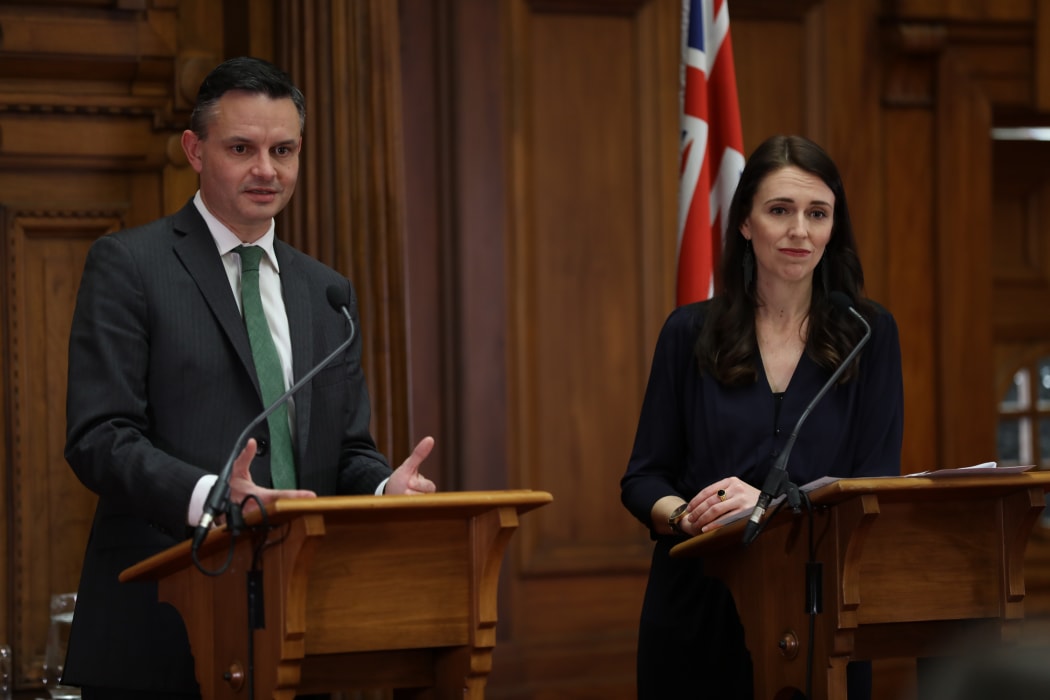
The plan was unveiled by Climate Change Minister James Shaw and prime Minister Jacinda Ardern yesterday. Photo: VNP / Phil Smith
The proposed bill to provide a framework for the country's transition to a low emissions economy over the next 30 years was introduced to Parliament yesterday.
The aim is to help limit global warming to no more than 1.5 degrees Celsius and to build a country and economy that can cope with the changing climate.
Bronwyn Hayward was New Zealand's lead author on last year's major Intergovernmental Panel on Climate Change report which said limiting warming to 1.5 degrees is necessary to ensure a more sustainable and equitable society.
She said the bill is hopeful, but troubling. "The hopeful part is that this is really the framework that we have to get into law in order to make the really big changes... that said I find it quite troubling that we've had to set the bar so low, especially around things like our near-term methane targets in order to get everybody on board."
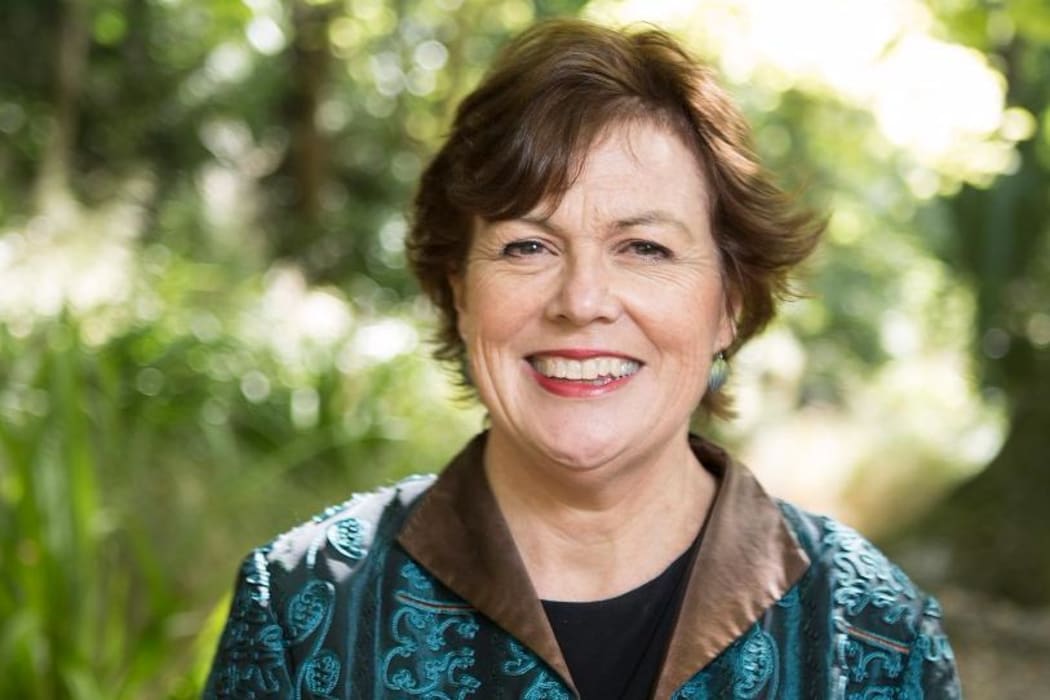
IPCC lead author Bronwyn Hayward says the government's new climate change policy provides a framework but the bar is being set low so that everybody will get on board. Photo: Supplied
The bill treats the long-lived gases of carbon dioxide and nitrous oxide differently from methane, which is short-lived and degrades over decades.
The bill wants net zero carbon dioxide and nitrous oxide by 2050, but to reduce methane by 10 percent below 2017 levels by 2030, with a provisional reduction of 24 to 47 percent by 2050.
The deputy director of the New Zealand Agricultural Greenhouse Gas Research Centre, Andy Reisinger said the move is consistent with the science and the targets in the IPCC report and with the global effort needed on agriculture.
He said it would not have been unreasonable to ask for a net zero methane level, but it would have changed farming in this country fundamentally.
"You can't take methane out of the atmosphere faster than it decays naturally, so to get to zero methane, you basically have to have zero livestock, and that transformation is presumably stronger than people could imagine for now," Dr Reisinger said.
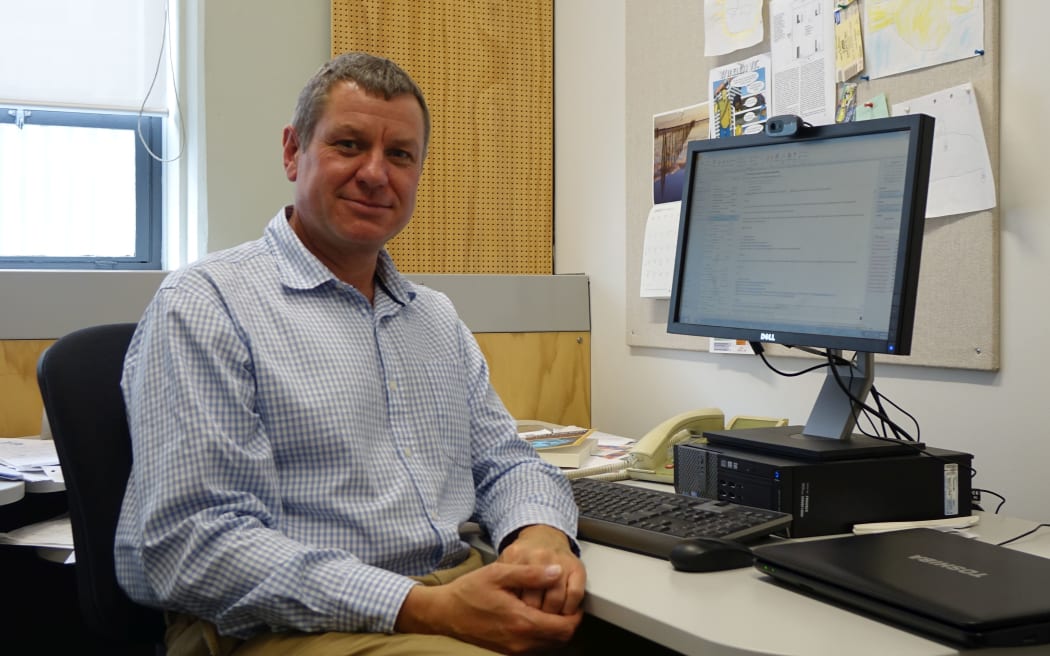
Professor of Climate Change Dave Frame says there is a widespread consensus in New Zealand that carbon dioxide and nitrous oxide have to be reduced to zero. Photo: RNZ / Chris Bramwell
A professor of climate change at Victoria University, Dave Frame, said it was not a surprise the gases were split and there is a lot of science backing it.
He said what is being lost in the debate about methane is that people have got on board with the idea of reducing nitrous oxide to zero, which was not the case just a few years ago.
"In amongst the split target conversation you've got to realise that pretty much everyone is now onboard with saying: 'yes CO2 has to go to zero, and so does nitrous oxide', and there aren't that many countries where there is this much agreement about those two points," Professor Frame said.
The bill will establish a Climate Change Commission as an independent Crown entity which will help to set five yearly carbon budgets and monitor the progress the country is making reducing emissions, as well as carrying out regular risk assessments from climate change.
Professor Frame said it is vital that the commission has credibility and it needs to have meaningful mechanisms to ensure compliance and sanction powers in the event of non-performance.
New Zealand First has said it prevented the commission from being granted statutory independence like that of the Reserve Bank.
The government's summary of the bill also said the commission will "generally act independently of government policy when it performs its functions".
Dr Hayward said it is pleasing the commission will be driven by research expertise, because she was worried it could be captured by industry.
But she believes the commission would have been more effective if it could have reported to the whole of Parliament and not the government of the day.
"We all know that when you're reporting to a government of the day your report can be, the text can be massaged, the release can be delayed which all gets in the way of what we actually need which is a fearless commission," Dr Hayward said.
The public will have a chance to have their say on the bill when it goes before a select committee next month.

